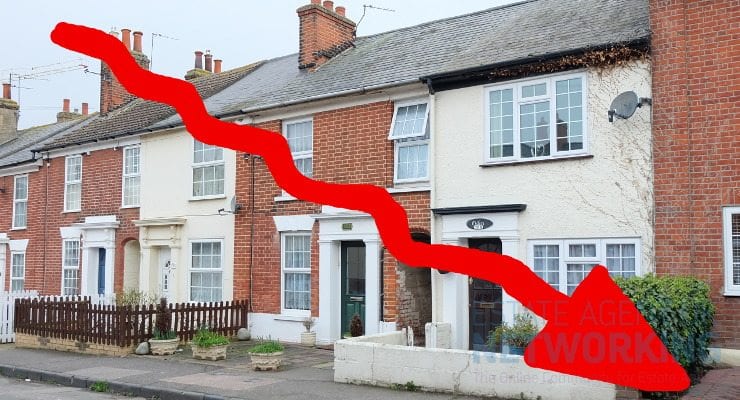Why are HMO numbers falling?
The latest research from COHO, the HMO management platform, reveals that despite little change in tenant demand, house share availability has dropped by almost -60% in some parts of England, raising the question of whether we’re seeing an HMO landlord exodus.
COHO’s analysis of house share listings data* shows that in England, the number of available house shares has fallen by -15.2% between June and September 2025.
In fact, demand has fallen in 11 of the 12 major English cities that COHO analysed, with Bradford (-59.1%) and Leeds (-55.4%) seeing more than half of the available stock leave the market. Meanwhile, stock has diminished by more than 20% in Manchester (-33.3%), Brighton (-32.9%), Leicester (-24.6%), Nottingham (-23.7%), and Sheffield (-21%)
London is the only city to have seen an increase in house share stock, with numbers rising by 4.7% between June and September.
Meanwhile, house share demand data* shows that over the same time period tenant appetite for house shares has increased by just 3.3% in England, growth that is not strong enough to explain such a drastic decline in availability.
In Bradford, where availability has dropped by almost -60%, demand is up by just 14.3%, while in Leeds, home to the second most severe stock drop, demand has actually fallen by -1.1%.
Sheffield presents another confusing picture. While stock has fallen by -21%, it has also seen the largest fall in demand across all 12 cities (-3.7%).
How can declining house share numbers be explained?
One good reason for the number of available house shares declining between the months of June and September is students. As summer came to a close, many university students will have secured last-minute house shares in time for the start of a new academic year, snapping up a good portion of the available market, particularly in the big uni cities like Leeds, Manchester, Nottingham, and Sheffield.
However, this alone does not explain why we’ve seen an overall trend of simultaneous decline in both supply and demand for house shares. The only reasonable conclusion seems to be that HMO landlords have started exiting the sector.
Perhaps they’re being driven out by the increased HMO stigma being peddled by certain corners of Westminster and the press in relation to England’s migrant housing crisis. Or maybe they’re choosing to cash out ahead of the Renter’s Rights Bill being passed into law, which is expected to contain a raft of new, costly regulations that landlords will have to adhere to.
COHO Founder and CEO, Vann Vogstad, commented:
“Any data that points towards a declining supply of shared houses should be a real cause for concern on Downing Street. The HMO sector is a vital tool in the nation’s battle against the housing drought, but the sector is facing hard battles from two fronts.
First there’s the fact that the entire sector is being unfairly maligned on the Right of the political spectrum, placed at the centre of some kind of batty migrant conspiracy theory. We already know that this is causing planning councils to shy away from approving new shared living schemes, but is it now also causing HMO landlords to cut their losses and sell up?
Secondly, the incoming Renters’ Rights Bill looks like it is going to given the green light, full steam ahead, without proper consideration given to the ways in which it disincentives landlords, again causing many to leave the rental rector. Then we’ve got Labour’s proposal of taxing rental income. This in particular is going to be a huge blow to HMO landlords whose rental income per property tends to be greater than your standard buy to let. We can’t be surprised now if swathes of HMO landlords decide that enough is enough and leave the sector altogether.
If this is indeed happening, there’s no prize for guessing what comes next. Further rental supply shortages which in turn means a massive hike in rent prices. Everybody loses.”









